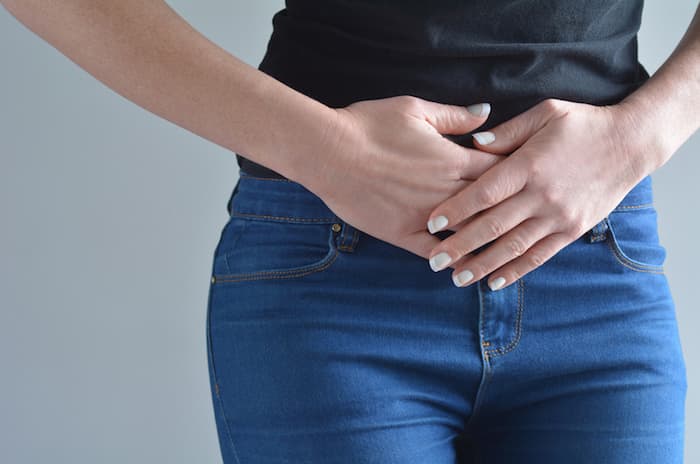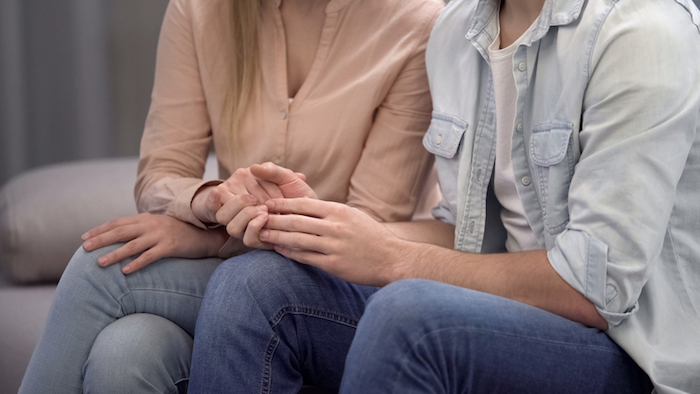- Calls to this hotline are currently being directed to Within Health or Eating Disorder Solutions
- Representatives are standing by 24/7 to help answer your questions
- All calls are confidential and HIPAA compliant
- There is no obligation or cost to call
- Eating Disorder Hope does not receive any commissions or fees dependent upon which provider you select
- Additional treatment providers are located on our directory or samhsa.gov
Bulimia and Anxiety: How Do They Relate?
For those who have struggled with Bulimia, it is easy to identify and recognized the heightened anxiety that often comes hand-in-hand with this mental illness. Whether severe anxiety is a co-occurring condition with Bulimia, if anxiety is induced by the eating disorder, or if bulimia is used to help cope with anxiety, these two conditions are often intertwined.
The terms Co-occurring conditions, or dual disorders, are used to characterize the presence of two or more disorders at the same time, such as bulimia and anxiety.
Anxiety-related disorders that can co-occur with bulimia include the following:
Post-traumatic Stress Disorder (PTSD)
A psychiatric disorder than can develop following the experience or witness of a traumatic event, such as natural disaster, physical/sexual assault or abuse, military combat, serious accidents, or other life-threatening events [1].
Involves stress reactions as an individual relieves the traumatic experience, such as:
- Flashbacks
- Insomnia
- Feelings of estrangement\detachment
Panic Disorder
This anxiety disorder is characterized by sudden and repeated attacks of fear that last for several minutes or longer. Panic disorder is characterized by panic attacks, which occur when an individual is fearful of losing control or of experiencing disaster, even when there is no real immediate threat or danger [2].
Many physical reactions occur during panic attacks, such as:
- Breathing difficulties
- Weakness or dizziness
- Chest pain
- Stomach pain
- Racing heart
Obsessive-Compulsive Disorder (OCD)
This type of anxiety disorder is defined by undesired and repeated feelings, thoughts, ideas, sensations, or behaviors (obsessions) that drive an individual to react in a certain way (compulsions) [3]. For an individual who has an eating disorder, this can include:
- Excessive calorie counting
- Excessive fear of weight gain
- Checking and rechecking actions (such as weight checks)
- Performing specific food rituals during meal times
Generalized anxiety disorder (GAD)
Women or men who suffer with this anxiety disorder live in a chronic state of fear or worry that lasts for more than six months. Fears are typically disproportionate to the situation or circumstance experienced. GAD that is left untreated can develop into a more severe anxiety disorder or cause physical symptoms.
Social Anxiety
Also known as social phobia, social anxiety disorder is an intense fear of interacting with other people. This can lead to self-consciousness, fear of being negatively judged or criticized by others, and the avoidance of social situations.
Social situations that can trigger intense anxiety can include:
- Interacting with others
- Using public restrooms
- Being the center of attention
- Working or speaking in front of others
- Talking on the phone, going to parties
- Other triggers
A Strong Connection Between Bulimia and Anxiety
While many factors contribute to the development of an eating disorder, such as bulimia, having an anxiety disorder can be a risk factor in itself. Research has demonstrated the connection between eating disorders and anxiety disorders.
A 2004 study found that two-thirds of individuals with an eating disorder also suffered with an anxiety disorder, with over 40 percent developing a disorder during childhood (and before the onset of the eating disorder) [4].
Unhealthy Coping for Anxiety
Bulimia may develop as a way to manage an intense anxiety disorder in a person who is already susceptible to develop an eating disorder. Chronic bingeing and purging episodes may serve as a means of distracting from feelings of fear, worry, or nervousness or as a way of numbing oneself from experiencing a panic episode.
The combination of these disorders can prove fatal, as bulimia is a deadly psychiatric illness. Because of the severity of these disorders, it is essential that professional help is sought to treat both the anxiety disorder and the bulimia.
Help Is Available for Bulimia and Anxiety
Because bulimia and anxiety often occur together, many treatment programs and eating disorder specialists are trained to address both disorders. A person suffering with anxiety disorders will learn healthier ways to cope with the feelings they often experience and work through healing any underlying trauma that may be present.
Having treatment for both bulimia and anxiety can help a person heal holistically from these disorders that often co-occur with one another.
Contributor: Crystal Karges, MS, RDN, IBCLC for Eating Disorder Hope
References:
- Post Traumatic Stress Disorder by the Nebraska Department of Veterans’ Affairs, “What is PTSD (Posttraumatic Stress Disorder)?” http://www.ptsd.ne.gov/what-is-ptsd.html
- National Institute of Mental Health, “What is Panic Disorder”, http://www.nimh.nih.gov/health/topics/panic-disorder/index.shtml
- PubMed Health, “Obsessive-compulsive disorder”, http://www.ncbi.nlm.nih.gov/pubmedhealth/PMH0001926/#adam_000929.disease.causes
- Anxiety and Depression Association of America, “Eating Disorders”, http://www.adaa.org/understanding-anxiety/related-illnesses/eating-disorders
Last Updated & Reviewed By: Jacquelyn Ekern, MS, LPC on November 11th, 2014
Published on EatingDisorderHope.com
Related Reading
- What is Bulimia: Symptoms, Complications, & Causes
- Physical Side Effects of Bulimia: Be Aware of Some of These Signs
- How Do Antidepressants Treat Bulimia?
- Electrolytes and Bulimia: Why Is This a Big Deal?
- Bulimia: Dental Problems Caused By Repeated Vomiting
- When Your Spouse Has Bulimia
- Risks of Bulimia During Pregnancy
- Laxative Abuse in Bulimia: Physical Consequences, Complications and Ramifications
- Bulimia Symptoms – What Happens: From Ingestion to Purging
- Bulimia and Depression



